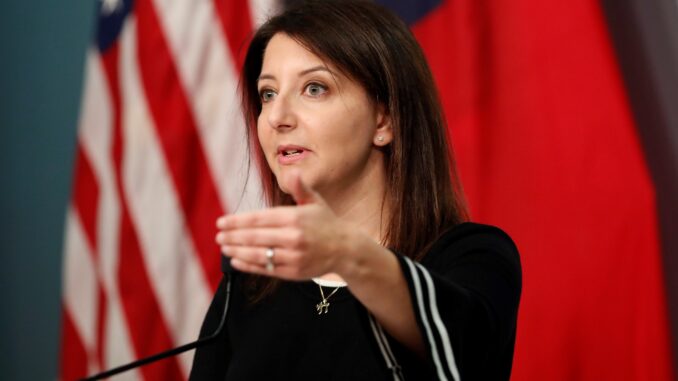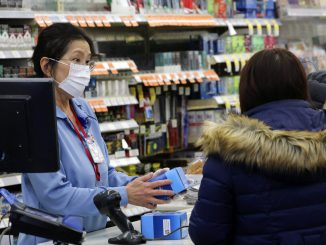
RALEIGH — The North Carolina Department of Health and Human Services (NCDHHS) announced the launch on Dec. 4 of a COVID-19 testing pilot program in the state’s K-12 public schools.
According to the press release from the NCDHHS, the objective of the pilot is to “quickly identify students and staff who may have the virus to help slow its spread.”
“Having rapid tests available in our schools is another important tool to both slow the spread of the virus and keep our children in the classroom. With increased community spread, these tests add to the other safety protocols in place at K-12 schools to protect our students, teachers and staff,” NCDHHS Secretary Mandy Cohen said in the release.
The pilot program is open to public school districts, charter school networks or individual charter schools currently offering any in-person instruction. Pilot applications were due on Dec. 8 and the selected pilot sites will receive rapid tests at no cost as soon as Monday, Dec. 14, 2020. At least 16 districts and 10 charter schools are already approved participants. The state’s largest districts, Wake County and Charlotte Mecklenburg, were not on the Phase 1 participant list provided by NCDHHS.
In testing for coronaviruses, there are two types of diagnostic tests. One test is a molecular test or PCR test, which can detect a virus’s genetic material in a sample. The other type of test is an antigen test that looks for specific proteins of a virus. Additionally, there are antibody tests that look for antibodies a person’s immune system generates in response to a virus or infection. Antibody tests are not used to diagnose COVID-19 for the multiple-week time period it may take a person to produce antibodies.
The N.C. K-12 pilot program will use the Abbott BinaxNOW rapid antigen test card. This test employs a nasal swab method by trained personnel and can provide results in about 15 minutes.
The Abbott BinaxNOW test was selected by the U.S. Department of Health and Human Services (HHS) and the Department of Defense (DOD) as part of a testing initiative announced earlier this year for selected target environments, including schools. According to the pilot program application packet, North Carolina will be receiving around 3.1 million of these tests to use in areas “including but not limited to public schools, including districts and charter schools.”
North State Journal asked NCDHHS if testing of students was going to be mandatory or if refusing to participate would impact in-person attendance.
“Regular testing of staff at K-12 schools is not required, and testing is not mandatory for in-person attendance for staff or students, and schools are required to get parental/guardian consent to test students,” NCDHHS Communications Manager Kelly Haight Connor wrote in a response email.
Haight also wrote that “schools and districts must send notification forms to inform parents/guardians when a student has received an Abbott BinaxNOW test while at school and the result of the test.”
“The notification form also serves to inform parents/guardians on what next steps they must take to ensure follow-up, dependent on the child’s test results,” wrote Haight. “Phase 1 of this pilot is scoped to include testing only.”
Haight did not say if school districts could require staff to participate or if staff will be tested on a regular basis under the pilot program.
According to NCDHHS, the K-12 testing pilot is unrelated to the state’s vaccine distribution plan.
“The vaccination phases are determined by a combination of health and exposure risk factors,” Haight wrote. “Also, it should be noted that at this time, no vaccine has been approved for use on people who are under 18-years old.”
“The overall goal is to get rapid antigen testing available in as many schools as possible,” Haight told North State Journal. “The state will be closely monitoring the implementation and findings from phase 1 of this pilot to determine future distributions.”
Haight went on to say that “Schools will be one of many testing-site options” and that various state and local departments as well as healthcare providers will continue to offer testing throughout the state.
Some contact tracing data in New York, released during a Dec. 11 briefing by Gov. Andrew Cuomo, showed that 74% of infections were linked to “household spread.” The data reflects 46,000 cases between early September through November where a source of infection was identified. Cuomo indicated there were “thousands more” for which no source could be identified.
In a list of 30 sources of infection traced in the New York data, school-aged children did not even make the top 10, but education employees did, ranking fourth on the list with a rate of 1.50%. Elementary students came in at .49%, high school students at .46% and middle school student at .19%.
In recent months, federal health officials, including CDC Director Robert Redfield and White House COVID-19 adviser Dr. Anthony Fauci, have noted that schools are not drivers of infection rates and that every effort should be made to keep schools open for in-person instruction.
“The truth is, for kids K-12, the safest place they can be, from our perspective, is to remain in school,” Redfield said at a late November briefing. “K-12 schools and really our institutes of higher learning, really are not where we are having our challenges.”
Also in November, NCDHHS State Health Director and Chief Medical Officer Dr. Elizabeth Cuervo Tilson told the N.C. State Board of Education that children “have relatively low rates of infection and are not driving our increases.”
More information on the COVID-19 testing pilot for North Carolina K-12 public schools is available at https://covid19.ncdhhs.gov/guidance#schools.


